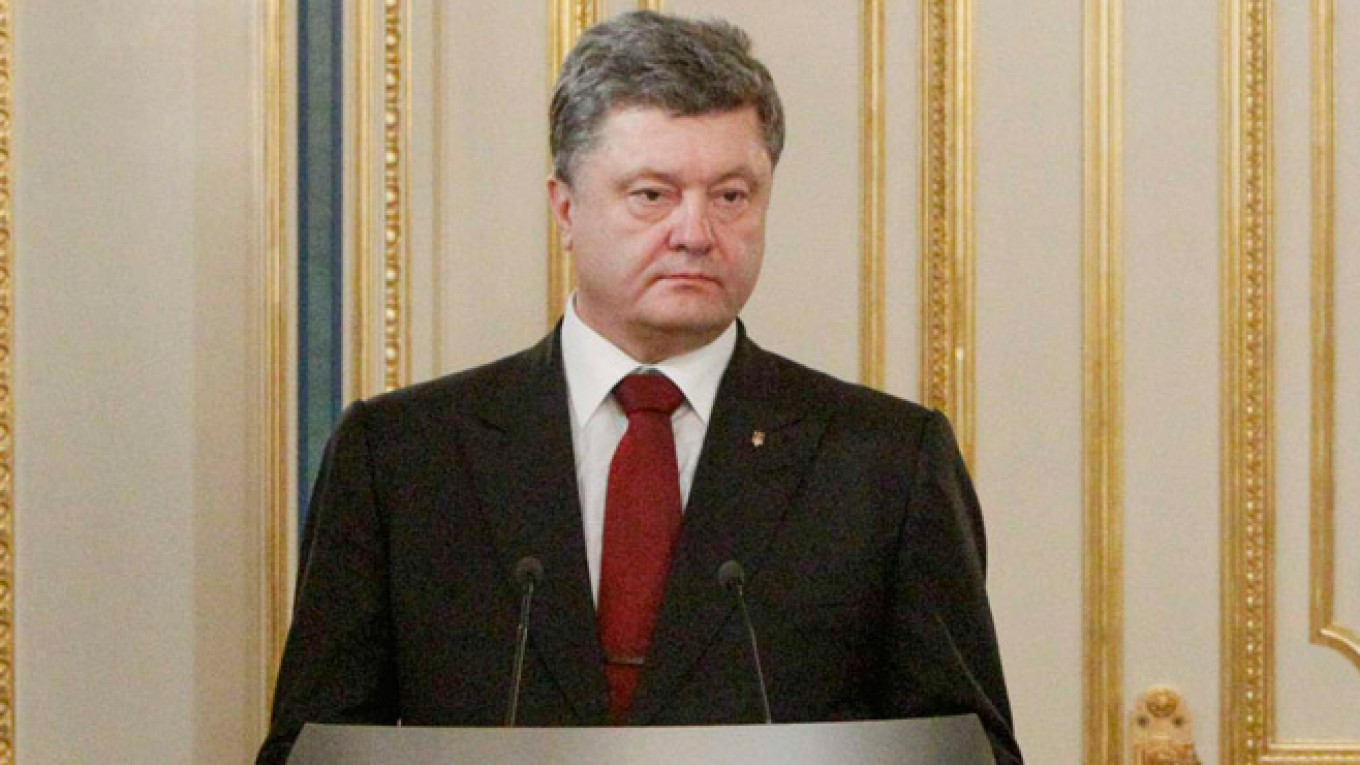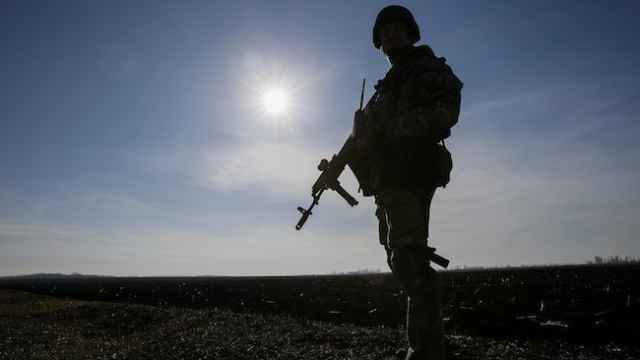Ukrainian President Petro Poroshenko submitted a draft resolution to parliament Saturday aiming to establish certain areas in the rebel-held east that will enjoy a special self-governance status.
The bill was registered on the parliament's website under the name "draft resolution for the determination of specific districts, cities and villages in Donetsk and Luhansk, where a special type of self-governance will be applied." The text of the bill has not been released publicly.
The move was made in accordance with the so-called Minsk II agreement, which was brokered in the Belarussian capital in February during a marathon round of talks between President Vladimir Putin, his Ukrainian counterpart Poroshenko, German Chancellor Angela Merkel and French President Francois Hollande.
The leaders walked away from the talks on February 12 having established a fragile cease-fire in Ukraine's conflict-torn east, and agreeing that Ukraine would pass legislation designating key rebel-held areas as falling under a regime of self-governance by Saturday — approximately one month after the talks were held.
Given that it will take time for the parliament to approve the president's resolution, the agreed-upon deadline will apparently not be met, particularly in light of the fact that the Ukrainian parliament is not set to convene until Tuesday.
Meanwhile, rebel leaders have expressed dismay over the delay. Leaders of the self-proclaimed Luhansk and Donetsk people's republics have called on Germany's Merkel and France's Hollande to pressure Ukraine to comply with the Minsk II agreement, news agency Interfax reported on Sunday.
After Poroshenko's resolution was submitted to parliament, Denis Pushilin — representative of the Donetsk People's Republic in the Contact Group on east Ukraine, which comprises representatives of Ukraine, Russia, the rebel-held territories and the Organization of Security and Cooperation in Europe — told reporters that he was unaware of the bill's contents.
"We have not received the document, even though it was supposed to have been discussed, at least at the level of the Contact Group's working subgroups," he told the rebel-established Donetsk News Agency.
Ukrainian lawmakers previously passed similar legislation assigning self-governing status to the rebel-held territories, but for a limited duration. The law "On Temporary Order of Local Self-Governance in Particular Districts of Donetsk and Luhansk Regions," passed last October, assigned select areas special rights and privileges, including the right to elect local prosecutors and judges for a duration of three years.
Last week, Ukraine's National Security and Defense Council said that the special status will extend to those areas that were already under rebel control last September, when the first round of Minsk agreements were brokered. Those talks had also produced a shaky cease-fire, which failed to hold muster as tensions again swelled between rebel forces and Kiev-loyal troops. Since then, the insurgents have achieved significant territorial gains.
"The special self-governance order will not be applied to areas that were captured by the insurgents after the Minsk memorandum was signed," Mikhail Koval, the council's secretary, told Interfax on Thursday.
A Message from The Moscow Times:
Dear readers,
We are facing unprecedented challenges. Russia's Prosecutor General's Office has designated The Moscow Times as an "undesirable" organization, criminalizing our work and putting our staff at risk of prosecution. This follows our earlier unjust labeling as a "foreign agent."
These actions are direct attempts to silence independent journalism in Russia. The authorities claim our work "discredits the decisions of the Russian leadership." We see things differently: we strive to provide accurate, unbiased reporting on Russia.
We, the journalists of The Moscow Times, refuse to be silenced. But to continue our work, we need your help.
Your support, no matter how small, makes a world of difference. If you can, please support us monthly starting from just $2. It's quick to set up, and every contribution makes a significant impact.
By supporting The Moscow Times, you're defending open, independent journalism in the face of repression. Thank you for standing with us.
Remind me later.






